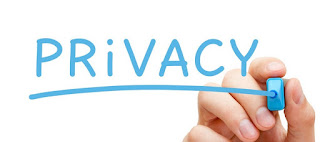How to Build healthy Relationship
Healthy relationships allow you to express your
individuality both with and without your partner, bring out the best in both of
you, and encourage growth. In a healthy relationship, if
something is bothering you, it's best to talk about it instead of holding it
in. Respect Each Other.
1. Spend quality
of time together.
It’s easy to
transmission from face-to-face time together to digital communication. Spending
quality of time together can help
strengthen your relationship and increase the perfect bond you and your partner
feel together
Find interesting
activities or works that you can do together regularly. It can be as simple as
enjoying a cup of coffee together each morning or reading together at night.
Trying
something new together can be a fun and exciting way to spend time together.
You don’t have to do anything crazy — even going out to dinner at a new
restaurant or trying a new cuisine can be a fun experience.
2. Respect your
Partner’s privacy.
Being into a
relationship it doesn’t mean you have to spend every moment together or share
everything. Respect your partner’s need for privacy and space. If jealousy
comes up, remind yourself that jealousy is something you feel that may not be
directly related to your partner’s actions.
It’s not
healthy for you or your partner to constantly monitor each other’s behaviors.
This can be rooted in jealousy or control, which are not healthy at all
Don’t demand anything
like your partner’s passwords of social media accounts or email. Respect your
partner’s privacy it will win trust of your partner.
.
3. Use a Soft,
Sweet tone while speaking.
Your
relationship must be based on mutual respect and love, not fear with a
confidence. A soft voice reflects the love and understanding that is missing
from yelling. Meet your partner’s eyes and speak from a place of love and
understanding.
If affectionate
names are commonly used in your relationship, you can use such names to show
that you still care for your partner even during a disagreement. Saying things
like "What do you think, dear?" or "I'm sorry I disappointed
you, baby. How can I make things right?" may help to ease the tension. Do
it with the bottom of your heart.
4. Practice
active listening.
Preparing to
listen to hear the message of your partner and not to prepare your defense.
Find a time and place where you can be without distractions and focus only on
what your partner is saying. Try to set aside your negative perceptions about
his or her actions or motives so you can focus on the conversation in real
time.
Make eye
contact. Nod your head when you agree and show you are attentive. After he or
she finishes speaking.
Be aware of the
nonverbal signs as well as what is said out loud.
5. Note warning signs of abuse.
Relationships should be built on respect and equality, not
power and control. While you may not think much of some behaviors at first,
disrespectful behaviors set a tone in a relationship. If your partner is
possessive, insulting, yelling, humiliating, or etc, take note. There is no
excuse for abuse. Abuse is a choice that an individual makes and you do not
have to be the victim.
6. Express
emotions.
Share your
thoughts and feelings with your partner and stay open to the feelings that
arise. Show interest in your partner’s feelings and support them during
stressful situations. Connecting emotionally with your partner allows you to
empathize with their experience. By discovering your partner’s feelings, you
may begin to feel more compassion toward them.
If you’re
feeling emotionally disconnected from your partner, start asking questions
about feelings and don’t blame or make any kind of assumptions on his/her.
7. Appreciate
each other.
In every step
you should appreciate each other. Be happy what he/she did and also don’t let
his/her disappoint with every move. A healthy relationship should be one in
which you and your partner feel appreciated. Often, relationships are built
from many small things added one on top of the other. Find the things your
partner does for you and say “thank you.” Instead of focusing on mistakes your
partner makes, focus on the ways your partner adds to your life. When you
notice something, speak out and show your appreciation.
Ask your
partner how they like to feel appreciated. Let your partner know how you like
to be appreciated. Say, “It means a lot to me when you notice the things I do
for you.”
8. Work through
problems as a team.
Relationships
are about the “we” and not the “I” or “you”. Focus on honest communication to
work through problems together with room for each of you to give and take.
Learn from one another instead of working against one another
For example, if
you need a sum of money to pay for a big purchase, you can sit down and find
ways for both of you to contribute. Each of you can put money into savings for
a span of time, or cut back on non-essential expenses.














No comments